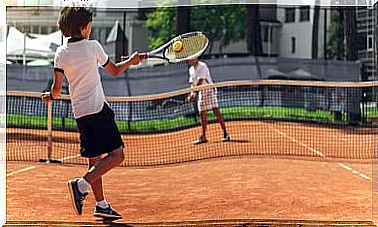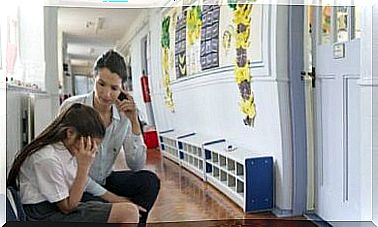Tips For Disorganized Children

If you think that your child is too disorganized or distracted, it is time to give him a hand to improve in these areas. Learn some tools and tips for this and you can help him succeed, not only in school, but also in his life. Children can be disorganized, but they just need a little help.
Disorganized children
When a child is disorganized and distracted, they may also have self-esteem issues because of this and the consequences of their actions. Of course, they are actions that are not voluntary, since disorganization seems to be something that is done almost without realizing it, but that it is difficult to remedy.
Many parents can relate to the feeling of helplessness of realizing that their child, once again, has forgotten to do a task. Children can be disorganized many times, it is true.
By learning the basics of being organized, managing time, and focusing on attractive and achievable goals, kids can get back on track to do better, at any academic level and in life too.

Tools to organize children
Getting organized can seem like a daunting task, but it’s as easy as putting things in one place. Having a folder for each topic and keeping things in one place really reduces the anxiety of not knowing where something is.
Also, you can follow these tips to prevent your children from being disorganized:
- A folder for each topic. In their mind, and physically, they can separate what they are working on. It saves them time and energy.
- Tab separators for each subject. Use these items to separate notes, assignments, handouts, tests or quizzes, and paper.
- A written planner. For teens, especially tweens, using a written homework planner is a wise move. Children will often forget things if they use a planner or datebook.
- A kitchen timer. This is for kids to take their time seriously, work 20 to 40 minutes, take a break, and then get back on. Every child is different in terms of how long they can focus on their work before needing a break.
Let’s face it: Most kids would rather have their wisdom teeth removed, without anesthesia, than organize their folders and backpack with their parents (and probably the other way around).
But the key to academic success lies in these tools and how they are used. You have to give them responsibilities and that they are consistent with the actions they do to prevent them from being so disorganized.
The Ideal Homework Environment for Disorganized Children
Text messages, Facebook, video games… A constant stream of entertainment (and distraction) is available to children almost at all hours. We as adults tend to forget how many distractions little ones have these days. An ideal work environment is free from technological distractions.

But for some children, sitting alone in a quiet room for an extended period of time will make them more likely to make paper airplanes than to complete their homework.
Not all children need absolute silence. Know your children’s study style. Some children like to be in the kitchen because they know their mother is around.
A large table or desk with space to spread out books and papers is the ideal place to do homework, while the bedroom, especially in or in front of the bed, is the less ideal place because it should be a resting place.
Your child’s style and circumstances
Adults sometimes inadvertently group struggling students together, but it is important to recognize the different traits and tendencies of children, individually. Nobody likes labels, but sometimes it helps to name certain things, if only to help identify problems.
It is necessary to know how children organize themselves, such as the procrastinating child, the overprogrammed child, etc. If your child has difficulties, the ideal is to know why he has them and help him adapt his skills in terms of his abilities, as well as help him adapt his skills of time management, homework, writing, his study method, his strengths…
In addition to finding study methods and academic goals that suit him, your child will also benefit from setting life goals that appeal to him. Motivating children to find what they are passionate about and finding success outside of school is a must.










